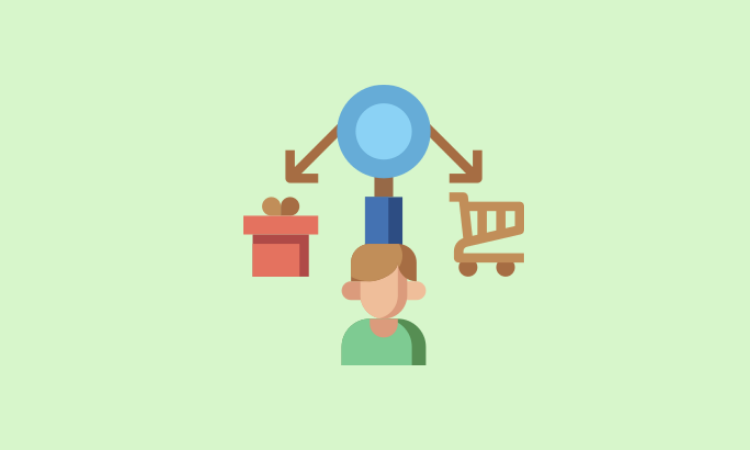
Dan Ariely on how Qapital uses behavioral finance principles to help people save more
via TearSheet
Challenger bank Qapital recently named behavioral economist Dan Ariely chairman of the board. One of the foremost leaders in psychology and its application in the personal finance, Ariely joined Qapital in 2015 as chief behavioral economist. He’s been instrumental in shaping how the bank’s members build positive relationships with money.
In November 2018, Qapital introduced tiered subscriptions as well as the addition of a robo investing platform and budgeting tools. The company now has more than 1.6 million members and has helped them save nearly $1 billion to date.
We caught up with Dan to discuss how his new role will continue to help give members the tools they need to overcome the stress and irrationality of everyday finances.
Chase stirred up a hornet’s nest of negative press off a seemingly tone deaf tweet about reining in spending. Does that approach — that tough financial love means just forgoing small purchases — work to get people saving and investing in their future?
It is often the case that we give small purchases a bad name, but the reality is that skipping two cups of coffee per week and putting this money into long-term saving is not sufficient to create a secure financial future. We need to take steps that are much more extreme. The real issue with financial decision-making is that it is very hard for people to visualize the consequences of their actions.
Imagine that I see a bicycle I really want, but it is $1,000. I can very easily imagine how my life would look if I had the bicycle, but it’s much harder to visualize what will happen to my life if I do not spend this $1,000. The challenge is that what we see, imagine and feel is spending, whereas saving is more abstract, non-emotional and far away. Therefore, we don’t care as much about it and we aren’t as motivated. One of the challenges for financial apps is to help us understand these tradeoffs, which Qapital has been designed to do.
Why is it so hard to get people to save?
There are multiple reasons why it’s so hard to save. The first one is now vs. later, the second is concrete vs. abstract and the third is invisible vs. visible. In general, we don’t do well with anything that has to do with now vs. later. We overeat, we under exercise — there are so many things we do that don’t serve our long-term best interests. Saving is just one of these behaviors. When we talk about abstract vs. concrete, something we buy now is concrete like buying a cup of coffee or a new computer or a bicycle. Saving is abstract – what will it get me in five or ten years?
The last reason it’s so hard to save is the issue of invisible vs. visible. How much do you know about what your neighbors are saving? Basically nothing. How much do you know about what they are spending? Quite a lot. We don’t see savings but we see spending in a very clear way. So what do we do? We measure ourselves and we compete on the things that we see, which is basically spending.
How is Qapital using behavioral finance to help users make better financial decisions?
There are basically two types of decisions, in a very broad way. The first is spending between now and later, and the second is when we spend now, what should we spend? Should I buy a new bicycle or save? Should I buy a bicycle or go to 50 movies? When it comes to long-term goals, Qapital moves money automatically towards those goals. When it comes to spending now, Qapital helps people visualize how much they are spending in accordance with how they want to spend. In setting up these goals and buckets and being able to visualize, Qapital helps members spend in a way that is aligned with their goals.
There are many other tools that Qapital offers based on behavioral finance. For example, think about budgeting like calorie counting. If you have to count calories for every single thing you eat or drink, it’s frustrating and you stop completely. The same is true with budgeting. If you have a separate budget for each item, you’ll stop saving. You need a budget for discretionary spending altogether, which Qapital provides in a prepaid debit card.
What are your plans to make behavioral principles more core to the product and experience?
Qapital already provides several tools to make the behavioral principles more connected. For example, our Freelancer Rule means that every time you get a check, a third is set aside to pay for taxes. There are automatic tools that reward you for healthy behaviors and we hope to make those tools more salient and central to the app itself. Looking ahead, we hope to help people to not just think about how they spend money proactively, but also retrospectively.
In one study we conducted, we found that there are some categories of spending that people regret. For example, going out. This isn’t because going out is not a good idea, but people go out and spend too much, then wake up the next day disappointed. We want to understand more of the nuanced behaviors people regret and create more features to help people overcome these mistakes and ultimately be more mindful about how they manage their money.
Qapital competes in a competitive market. Do you believe that behavioral principals can make a substantial difference in differentiation in the market?
I certainly think so. An app that gets people to spend without thinking or without making difficult tradeoffs can be very successful in the short term. But at the end of the day, our life with money is a repeated game. Eventually, people are looking for a solution. All the apps that get people to spend are going to be tempting for a while, but people will realize that it’s an unhealthy approach and turn to tools that are more helpful. There are some tools that provide partial solutions, but without a comprehensive solution and view on your income, short-term spending and goals-based savings, it would be hard to provide useful advice and automated rules.
Qapital’s approach — providing a comprehensive product that covers bill pay, banking, savings and investing — is incredibly important in order to provide the real value that people need.





